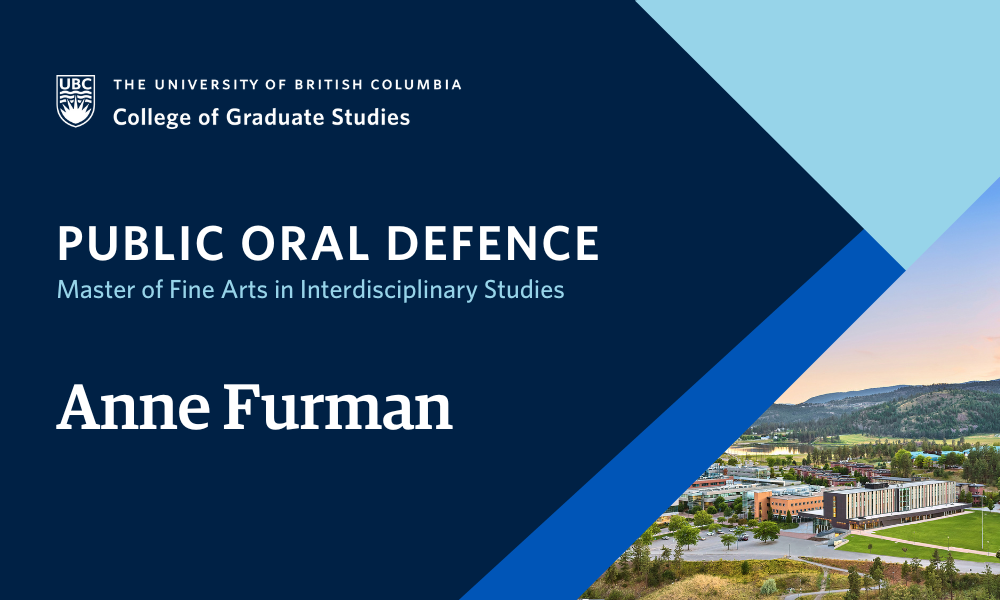
- This event has passed.
Thesis Defence: Lifeworlds: Interactive Workshops for Discovering How Non-Human Beings Experience Their Worlds
November 27, 2024 at 1:00 pm - 5:00 pm

Anne Furman, supervised by Denise Kenney & Greg Garrard, will defend their thesis titled “Lifeworlds: Interactive Workshops for Discovering How Non-Human Beings Experience Their Worlds” in partial fulfillment of the requirements for the degree of Master of Fine Arts in Interdisciplinary Studies.
An abstract for Anne Furman’s thesis is included below.
Defences are open to all members of the campus community as well as the general public. Registration is not required for in-person defences.
ABSTRACT
Lifeworlds is a series of three workshops/dialogical art pieces that explores how performance can be used as intervention in family-based environmental education. Each of the three workshops (“Listening with Bats,” “Passing Time with Trees,” and “Breathing with Sturgeon”) uses a combination of narrative, dialogue, and physical activity to create opportunities for participants to imagine the embodied experiences of another being (respectively bats, trees, and sturgeon) in their daily lives. The workshop outlines for Lifeworlds are designed to be adapted for a variety of geographic locations and easily replicated by educators with little or no performance training background.
The methodologies of conversation and imagination used to develop Lifeworlds come from the spheres of both applied theatre and environmental education pedagogy, as informed by my dual experiences in these fields. From the realm of applied theatre, I draw heavily on the framing and participant engagement methods of dialogical art as explained by Grant Kester, while from the realm of environmental education, I draw on Abigail Housen’s Visual Thinking Strategies and the multispecies ways of experiencing influenced by Jakob von Uexküll’s concept of umwelt.
Lifeworlds provides one possible pathway for knitting these two fields together through experiential, site-specific play and dialogue. Lifeworlds asks how performance-based methodologies can be applied to environmental education facilitation such that this workshop structure will invite future facilitators and participants to ask how imagining other beings’ ways of experiencing their environment can help us humans in creating healthier multispecies spaces.